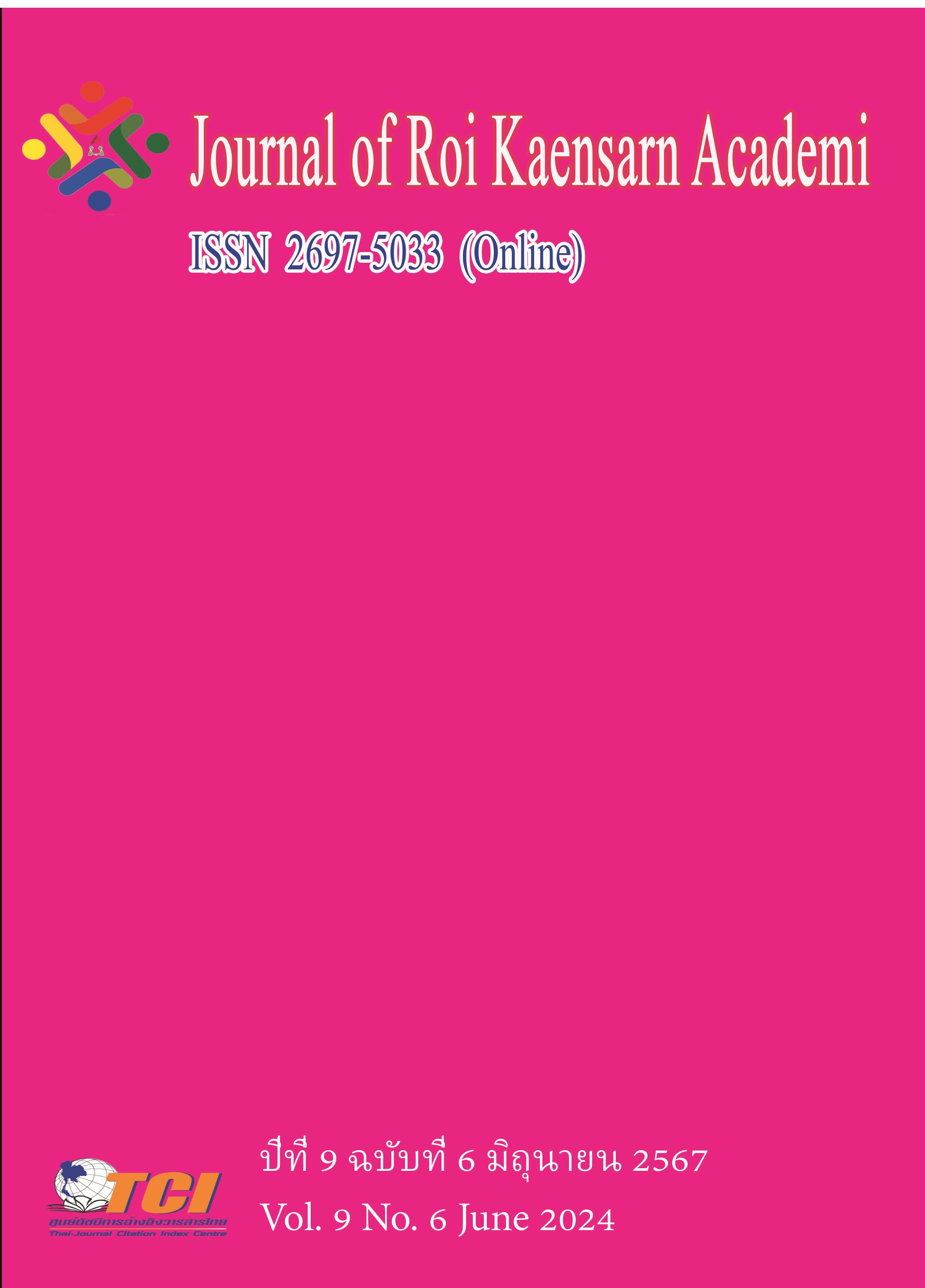The Influence of Digital Twin Technology on the Sustainable Development of World Cultural Heritage in Rural China
Main Article Content
บทคัดย่อ
The protection of digital cultural heritage in China from 2020 has also been issued by the Ministry of Culture and Tourism to promote the high-quality development of the digital cultural industry. There are many applications of digital twin technology, and in recent years, it has also played an important role in the sustainable development of World cultural heritage in rural China.This study aims to explore the sustainability factor of digital twin technology for rural cultural heritage in China. Quantitative research methods were used for validation in this study. Based on theoretical models of socio-technical systems, this study constructs a theoretical model of the influence of digital twin technology and China's rural cultural heritage. This model is used to explore the impact relationship between the six independent variables and the three sustainability-dependent variables. The study sample was selected from university students aged 18-28 in Chengdu, Kunming, and Nanchang provinces of China, and 1200 questionnaires were distributed. Data analysis and statistics were mainly carried out using the statistical analysis software SPSS. A confirmation factor analysis was performed on the model using the AMOS software. Assumptions and model validity are evaluated in the study.
The results show that: (1) It is found that the application of digital twin technology in China's rural world cultural heritage can be summarized into the following six indicators: digital culture and tourism, digital communication, digital archives, digital copyright, digital education, and digital management. (2) These six indicators have a positive impact on promoting the environmental, social, and economic sustainability of China's rural cultural heritage.
Article Details
เอกสารอ้างอิง
Ashworth, G., & Larkham, P. J. (2013). Building a New Heritage Tourism Destination: The Case of Margate. Tourism Geographies, 15 (1), 70-89.
Butler, R., & Boyd, S. (2014). Tourism and heritage site sustainability. In Tourism and National Parks: International Perspectives on Development, Histories, and Change (pp. 255-272). Routledge.
Coccossis, H., & Mexa, A. (2004). The contribution of ecotourism to the sustainable development of mountain regions: The case of Mount Pelion, Greece. Sustainable development, 12 (3), 158-17
David Ocón. (2021). Digitalising endangered cultural heritage in Southeast Asian cities: preserving or replacing? International Journal of Heritage Studies.(27),975–990
Davis, M. C., Challenger, R., Jayewardene, D. N. W., & Clegg, C. W. (2014). Advancing socio-technical systems thinking: A call for bravery. Applied Ergonomics, 45, 171-180.DOI:10.2514/6.2012-1818
Edward H. Glaessgen, D. S. Stargel. (2012). The Digital Twin Paradigm for Future
NASA and U.S. Air Force Vehicles. 53rd AIAA/ASME/ASCE/AHS/ASC Structures, Structural Dynamics and Materials Conference
20th AIAA/ASME/AHS Adaptive Structures Conference
14th AIAA 2012
Font, X., & Harris, P. (2004). Sustainable tourism: Social and environmental impacts. Channel View Publications.
Grieves M, Vickers J. (2017). Digital Twin: Mitigating unpredictable, undesir able emergent behavior in complex systems. In Transdisciplinary Perspectives on Complex Systems (Issue August). Springer International Publishing; p. 85–113
Gursoy, D., Chi, C. G. Q., & Lu, L. (2013). Antecedents and outcomes of museum visitors' satisfaction: The case of the Hermitage Museum. Tourism Management, 37, 52-63.
Hall, C. M., & Müller, D. K. (2004). Tourism, mobility, and second homes: Between elite landscape and common ground. Channel View Publications.
Rosa Tamborrino & Willeke Wendrich. (2017). Cultural heritage in context: the temples of Nubia, digital technologies and the future of conservation. Journal of the Institue of Conservation. (4), 168-182
Ryan Yung & Catheryn Khoo-Lattimore.(2017).New realities: a systematic literature review on virtual reality and augmented reality in tourism research. (22), 2057-2081 .doi.org/10.1080/13683500.2017.1417359
Savaget, P., Geissdoerfer, M., Kharrazi, A., & Evans, S. (2018). The theoretical foundations of sociotechnical systems change for sustainability: A systematic literature review. Journal of Cleaner Production. Advance online publication. doi:10.1016/j.jclepro. 2018.09.208
Tapper, R. (2004). Tourism and development in the developing world. Routledge.
Timothy, D. J. (2002). Cultural heritage and tourism: An introduction. Channel View Publications.
Timothy, D. J., & Boyd, S. W. (2003). Heritage tourism in the 21st century: Valued traditions and new perspectives. Journal of Heritage Tourism, 1 (1), 1-16.
Wang, R. & Xiang, A. (2021). Report on Metaverse Development in 2020-2021. Online. Retrieved November 1, 2022, from: https://www.toutiao.com/article/70092556397340 59528/?group_id=7009255639734059528&wid=1667291802865.

